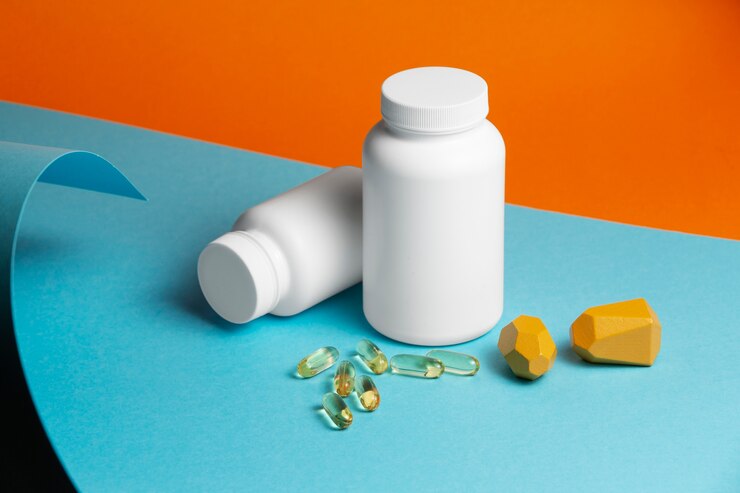Creatine pills are a convenient and popular supplement form used to enhance athletic performance, support muscle growth, and improve strength. Unlike creatine powder, which requires mixing with liquids, creatine pills offer a hassle-free alternative, allowing individuals to meet their fitness goals with ease. This article explores the benefits, types, and usage of creatine pills, while also addressing common considerations for potential users.
What Are Creatine Pills?
Creatine is a naturally occurring compound found in muscles and the brain. It’s primarily stored in muscle tissue and plays a critical role in the production of adenosine triphosphate (ATP), the energy source for muscle contractions during high-intensity exercises.
Creatine pills contain creatine monohydrate or other forms of creatine in a capsule or tablet form, providing a convenient and precise dosage. Unlike powder, they do not require any mixing or flavoring, making them an easy addition to daily routines.
Benefits of Creatine Pills
- Convenient Dosage: One of the most significant advantages of creatine pills is the ease of use. Each pill contains a pre-measured dose, eliminating the need for scoops or measurements.
- Supports Muscle Growth: Creatine supplementation has been shown to increase muscle mass, particularly when combined with resistance training. It does so by promoting ATP production, which enhances energy availability during intense workouts.
- Improves Exercise Performance: Creatine is known for its ability to enhance high-intensity exercise performance, such as weightlifting, sprinting, and other power-based sports. This is primarily due to its role in quickly replenishing ATP stores in muscles.
- Reduces Fatigue: Regular intake of creatine pills may help delay muscle fatigue, allowing for longer and more intense workouts. This benefit is particularly useful for athletes and fitness enthusiasts looking to push their limits.
- Easy on the Stomach: Unlike some powdered creatine supplements, creatine pills can be easier on the stomach for some individuals, minimizing the chances of digestive discomfort.
Types of Creatine Pills
While creatine monohydrate is the most common form found in pill supplements, there are several other types available, each with distinct characteristics:
- Creatine Monohydrate: The most studied and effective form of creatine, known for its ability to increase muscle mass and strength. Creatine monohydrate pills are widely available and affordable.
- Creatine HCL (Hydrochloride): Known for its higher solubility, creatine HCL pills offer enhanced absorption in the body. They may require a smaller dose than creatine monohydrate due to their increased efficiency.
- Buffered Creatine (Kre-Alkalyn): This form is claimed to have a higher pH level, which may improve stability and absorption. It is often marketed as a “no loading phase” alternative to traditional creatine monohydrate.
- Creatine Ethyl Ester: Designed for better absorption and reduced water retention, though research on its efficacy is mixed. Creatine ethyl ester pills can be an option for those looking for an alternative to monohydrate.
How to Use Creatine Pills
Proper usage of creatine pills is essential to maximize their benefits. Here’s a general guide:
- Dosage: The typical dosage for creatine monohydrate pills is around 3-5 grams per day. Depending on the concentration of each pill, this may equate to taking 4-6 pills daily. Always follow the manufacturer’s instructions on the label.
- Loading Phase (Optional): Some individuals choose to start with a loading phase, taking 20 grams of creatine per day (divided into 4 doses) for the first 5-7 days. This can quickly saturate the muscles with creatine, though it is not mandatory.
- Maintenance Phase: After the loading phase (if conducted), continue with a daily maintenance dose of 3-5 grams. This helps maintain creatine stores in the muscles.
- Hydration: Adequate water intake is crucial when using creatine pills, as creatine draws water into the muscles. Staying hydrated can help prevent potential side effects such as muscle cramps or dehydration.
- Timing: While creatine can be taken at any time of the day, some prefer taking it post-workout to aid recovery and muscle replenishment.
Potential Side Effects and Considerations
Creatine is generally considered safe for most individuals when taken as directed. However, some people may experience minor side effects:
- Gastrointestinal Discomfort: Some users report stomach upset, bloating, or diarrhea, especially during the initial loading phase. Creatine pills may mitigate this for some compared to powder forms.
- Water Retention: Creatine can cause the body to retain water, leading to temporary weight gain. This is usually a sign of increased creatine uptake in muscles rather than fat gain.
- Kidney Health: Individuals with pre-existing kidney conditions should consult with a healthcare professional before starting creatine supplementation, as it is processed through the kidneys.
Choosing the Right Creatine Pills
When selecting creatine pills, consider the following factors to ensure you get a quality product:
- Purity: Look for creatine pills that use high-purity creatine monohydrate or other forms. This ensures optimal effectiveness and reduces the risk of contaminants.
- Third-Party Testing: Opt for brands that have been tested by independent organizations, ensuring they meet quality and safety standards.
- Additional Ingredients: Some creatine pills may contain added ingredients like amino acids or electrolytes. Review the label to ensure these align with your dietary needs and fitness goals.
- Price and Servings: Compare different brands based on price per serving to find a product that fits your budget and provides good value.
Frequently Asked Questions
- Can creatine pills be taken daily?
- Yes, creatine pills can be taken daily. A consistent daily intake of 3-5 grams is recommended to maintain elevated creatine levels in the muscles.
- Do creatine pills require a loading phase?
- A loading phase is optional. It involves taking a higher dose for the first week to quickly saturate muscles with creatine. However, the same results can be achieved with regular daily dosing over a longer period.
- Are creatine pills suitable for vegetarians?
- Most creatine supplements are synthetic and do not contain animal products, making them suitable for vegetarians and vegans. Always check the label for confirmation.
Conclusion
Creatine pills offer a convenient and effective way to supplement creatine, supporting muscle growth, improved exercise performance, and reduced fatigue. With various forms available, individuals can select the type that best suits their needs.
When used correctly, creatine pills can be a valuable addition to a fitness regimen. Proper dosage, adequate hydration, and a balanced diet can maximize the benefits of creatine supplementation. Always consult with a healthcare professional before beginning any new supplement regimen, particularly if there are pre-existing health conditions.


